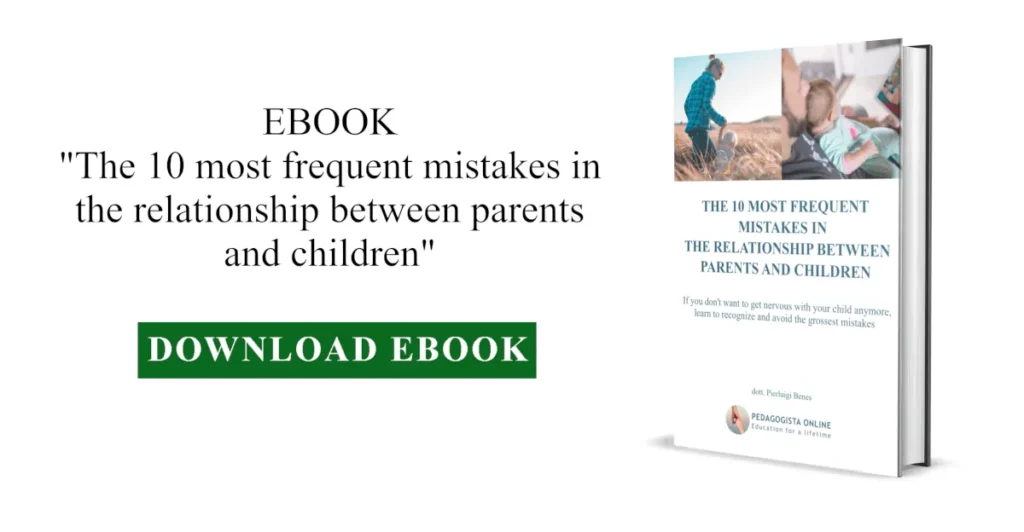One day, at a conference, a woman asked me: “Excuse me, what is pedagogy exactly?“
It is very common to meet people who ask this. Almost everyone has a fairly similar intuition, which follows common sense based on the idea that this discipline deals with the education of children.
Most people also realize that pedagogy has many aspects in common with other disciplines, such as psychology, sociology, and others; however, many do not understand exactly how they differ from each other.
I have also found myself in different situations listening to people without pedagogical skills explain what pedagogy is and what the pedagogue does, noting how this creates a lot of confusion for those who need to benefit from such an important profession.
I realized that it is useful for other professionals to try to enter into educational issues because this area represents an important part of the market and moves many interests. However, it is a dangerous phenomenon because, in addition to creating confusion among people, it puts inexperienced professionals in the position of not managing these kinds of dynamics.
It is precisely because of this custom that we are now witnessing an enormous demand for pedagogues because the evolution of people’s educational and training needs is very rapid and it finds only partial responses in current services, if not misleading ones.
Now I will explain what pedagogy is and then help you understand why many people perceive a certain confusion.
1. What pedagogy is
Pedagogy is the science of human formation, and it is focused on formative processes. They involve both human development and its education, meaning actions that facilitate the best possible development. Pedagogy is concerned with all age groups since human personality is constantly formed and evolving throughout the entire life cycle.
Furthermore, pedagogy is dedicated to human formation in all contexts where it occurs: family, school, work, vocational training, guidance, personal services, etc.
As I mentioned before, pedagogy is a science, but it is a particular science: it is not an exact science; it is not a theoretical discipline, that is, of reflection on educational phenomena alone; it is instead a science that expresses itself in direct contact with educational phenomena. These phenomena are very special because, unlike other natural phenomena, they are always unique.
Franco Blezza defines it as an «applicable science», that is, one that systematically combines theory and practice: in pedagogy, one cannot exist without the other, because a theory about education must always be consistent with the reality of the facts.
Therefore, pedagogy is a science that studies and acts; in fact, in addition to studying the way formative processes appear, it theorizes a way to act towards these processes and strengthen them.
In other words, pedagogy is dedicated to the processes of human formation to define the necessary ways to promote the best possible development. This inevitably begins with their observation, something that did not always happen in the past; in fact, rather than pedagogy, in the case of reflection in the abstract on educational phenomena, we speak of another discipline, that is, philosophy of education. This has generated significant confusion, which it is important to be aware of.
2. What pedagogy is not
Although it is an important discipline, philosophy of education is different from pedagogy; to give you a more precise idea, it is sufficient to think about the role that theoretical physics or theoretical chemistry have, respectively, for physics and chemistry.
The reflections and research conducted by physics and theoretical physics are profoundly different, despite both being important. The same relationship exists between pedagogy and philosophy of education: one thing is abstract reflections, another thing is the observation of real phenomena.
Unfortunately, pedagogy has been confused with philosophy for many years; this did not happen by chance, as there was a deep interest in creating this confusion. Indeed, totalitarian regimes of the last century created this simplification because they had no interest in observing and understanding educational phenomena. Their goal was to impose them through a precise model to be replicated in all sectors of society: family, school, work, and other areas of life.
Anyone who did not accept it could not teach, let alone promote different educational models. If they wanted to do pedagogy, they had to go to a place that allowed it. This was, for example, the fate of Maria Montessori, our most illustrious pedagogue, who had a conception of the child that did not match the regime’s vision.
That attempt to reduce pedagogy to philosophy had important repercussions for decades, so much so that even today there are not a few pedagogues who dabble in philosophy of education, claiming to do pedagogy.
Among professionals, there is a phenomenon that struggles to die; many define themselves as pedagogues without having the title, and often discuss education with the simplistic approach I mentioned, applying their own personal “philosophy of education” to educational facts never observed from a pedagogical perspective.
3. Pedagogy as profession
Pedagogy is not only a science, but also a profession. It is historically so, being an ancient profession like that of a doctor and other figures. Although the name «pedagogue» is more recent and used since modern times, even the Greek Sophists devoted themselves to the care of the education of young people, with the aim of making them citizens capable of living politics. In more recent times, the great pedagogue J.M. Itard (in the picture) gave rise to a first modern structuring of the pedagogical function, rejecting the diagnosis of uneducability on Victor, the wild child, and building an educational project based on the observation of the child.
He was followed by many other illustrious pedagogues, such as Seguin, Decrloy, Claparede, Montessori, etc., who made the history of this ancient profession. Nowadays, pedagogue is the top figure in the education field and collects the legacy of these experiences to offer society, considered as groups of people and individuals, their own contributions of study and professionalism.


